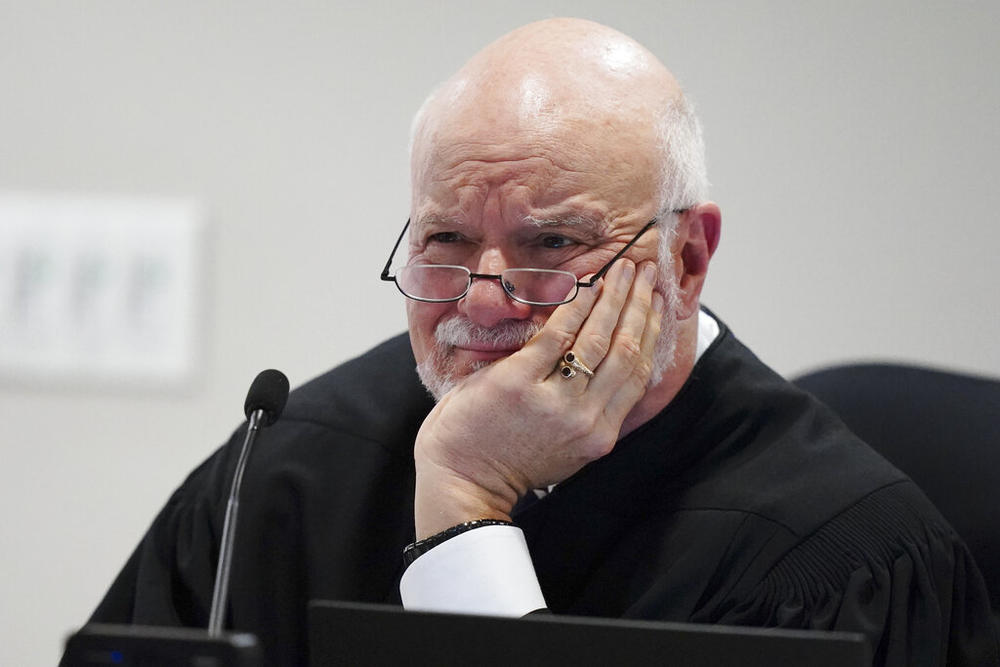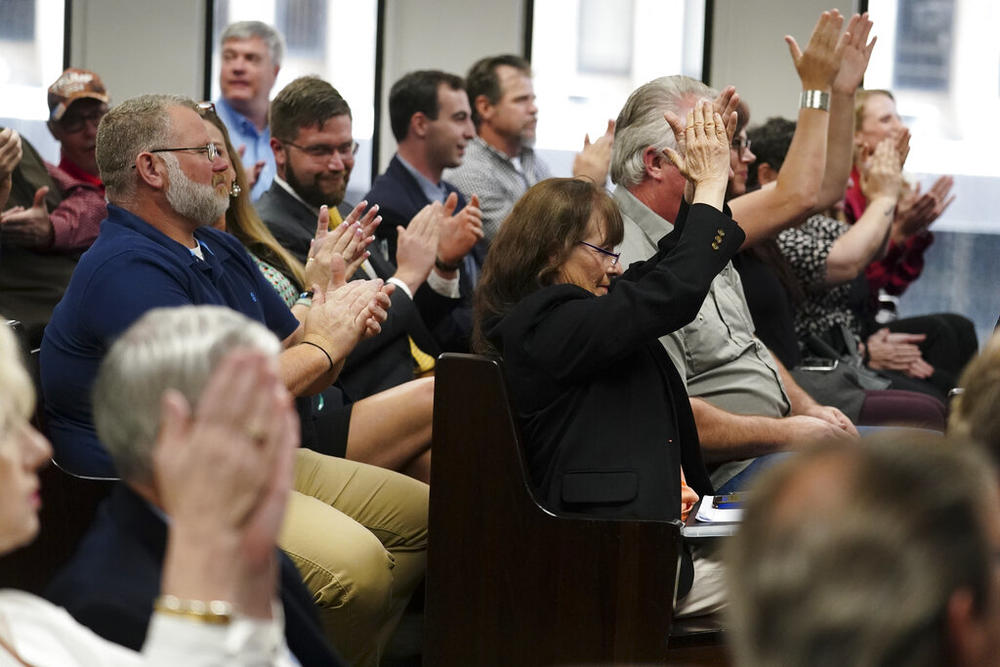
Caption
Judge Charles Beaudrot listens to arguments in the courtroom, Friday, April 22, 2022, in Atlanta. U.S. Rep. Marjorie Taylor Greene is appearing at a hearing Friday in Atlanta in a challenge filed by voters who say she shouldn't be allowed to seek reelection because she helped facilitate the attack on the Capitol that disrupted certification of Joe Biden's presidential victory.
Credit: AP Photo/John Bazemore, Pool



